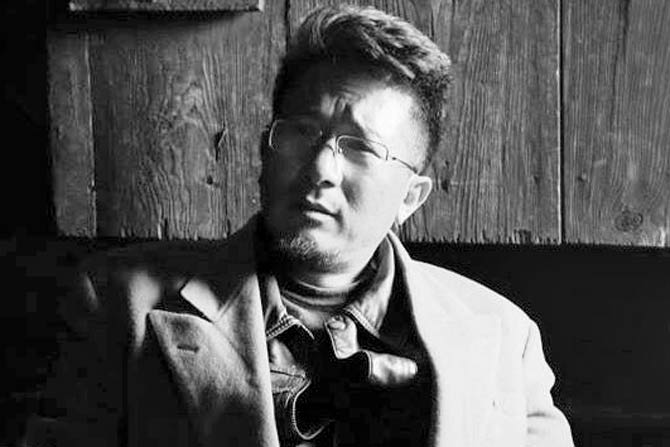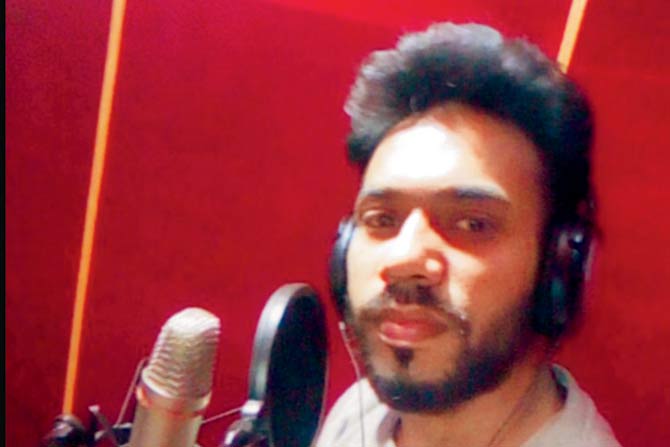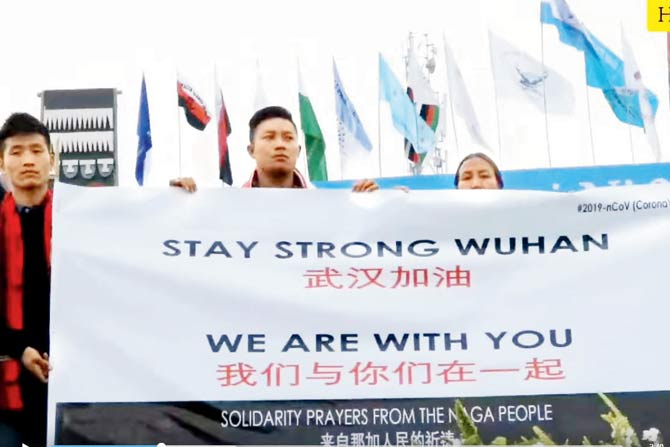The global panic around COVID-19 has led to a bunch of Indian musicians across languages writing songs about the coronavirus. But is any of it worth listening to?

Sawan Dutta aka Bengali Aunty in a still from her music video on coronavirus
Pan-India phenomenon
 Ngachonmi Chamroy
Ngachonmi Chamroy
It's not just Londhe, though. There are a bunch of artistes from across the country who have also taken inspiration from the coronavirus to create music, though their motivations aren't always the same. For example, when Manipuri activist Ngachonmi Chamroy wrote lyrics for a song called Empty streets of Wuhan, his intention was to counter the negative perception that's being peddled globally about China after the outbreak. He says, "The feeling cut too close to the bone because we as a people have faced the same sort of discrimination, being called names like 'chinky', 'momo' and 'coronavirus'. So, I wrote the song in order to show solidarity with the Chinese population since what we need most right now is empathy. We need to understand each other instead of spreading hate about any country."
Laughter, the best medicine
Then there's Mumbai-based Sawan Dutta, a popular vlogger who releases humorous music videos under the moniker of Bengali Aunty, where she uses a deliberately exaggerated accent to lampoon the idiosyncrasies of the Kolkata populace. An American friend of hers told her "probably jokingly" that she should make a song based on the hand-washing guidelines that the US government's Centre for Disease Control and Prevention had just released. "I told my husband about the suggestion and he said that it's actually a brilliant idea if I could crack it in time. So I sat down with the guidelines and wrote the track over the next two hours," Dutta says.

Yanboy
She adds that the advantage of using art as a medium to spread any important message is that you can communicate the subject in an interesting, easy-to-remember way. "It can simplify a complicated topic and make the communication more effective without being preachy," Dutta says, echoing the same sentiment as Yanboy, a 25-year-old rapper from Chandigarh. He was in the process of making beats for certain tracks when the thought struck him, "Why not use some of them to create a single about the coronavirus?" Yanboy says, "I wanted to talk to the youth in a language they understand. I wanted the message to reach people who still don't have enough information about the topic."
Don't panic
 Vaibhav Londhe
Vaibhav Londhe
So the common thread that runs across all these artistes is that they wanted to use music as an informative tool at a time when tensions about the virus are running as high as a person's temperature when he has a severe fever (though it must be said that it being such a hot topic helps them garner more hits). Londhe makes a pertinent point when he says that people will stop panicking as much once there's treatment available for COVID-19. He says, "I have friends in Wuhan and when I speak to them, they tell me that they aren't really worried since the Chinese government is taking all possible measures to stop the disease from spreading. To panic at first is, I think, basic human psychology. Even swine flu had led to global fear in 2009, but social media wasn't as strong back then, so people weren't as worried. I feel that we will view COVID-19 as just another flu once a vaccine is discovered."
 People hold up a poster at Lui Ngai Ni festival, where Chamroy’s song was performed last month
People hold up a poster at Lui Ngai Ni festival, where Chamroy’s song was performed last month
That might well be the case, but till then, it's of course better to be safe than sorry. There are others like Athawale who are also attempting to find a way to ward off the disease. But will plain chanting work against a mystery virus that the world's foremost scientists are still struggling to tackle? Our suggestion is, don't count on it.
Singing a global tune
There are foreign musicians who have also composed songs about the coronavirus. Vietnamese record producer Khac Hung has written Ghen co vy, for instance, while Mexican singer Mister Cumbia released La cumbia del coronavirus in January, making him the first to the post. But the most interesting of the lot is probably UK artiste Eric Drass's electronic track based on the genome sequence of the virus.
Catch up on all the latest Crime, National, International and Hatke news here. Also download the new mid-day Android and iOS apps to get latest updates
 Subscribe today by clicking the link and stay updated with the latest news!" Click here!
Subscribe today by clicking the link and stay updated with the latest news!" Click here!







_d.png)



